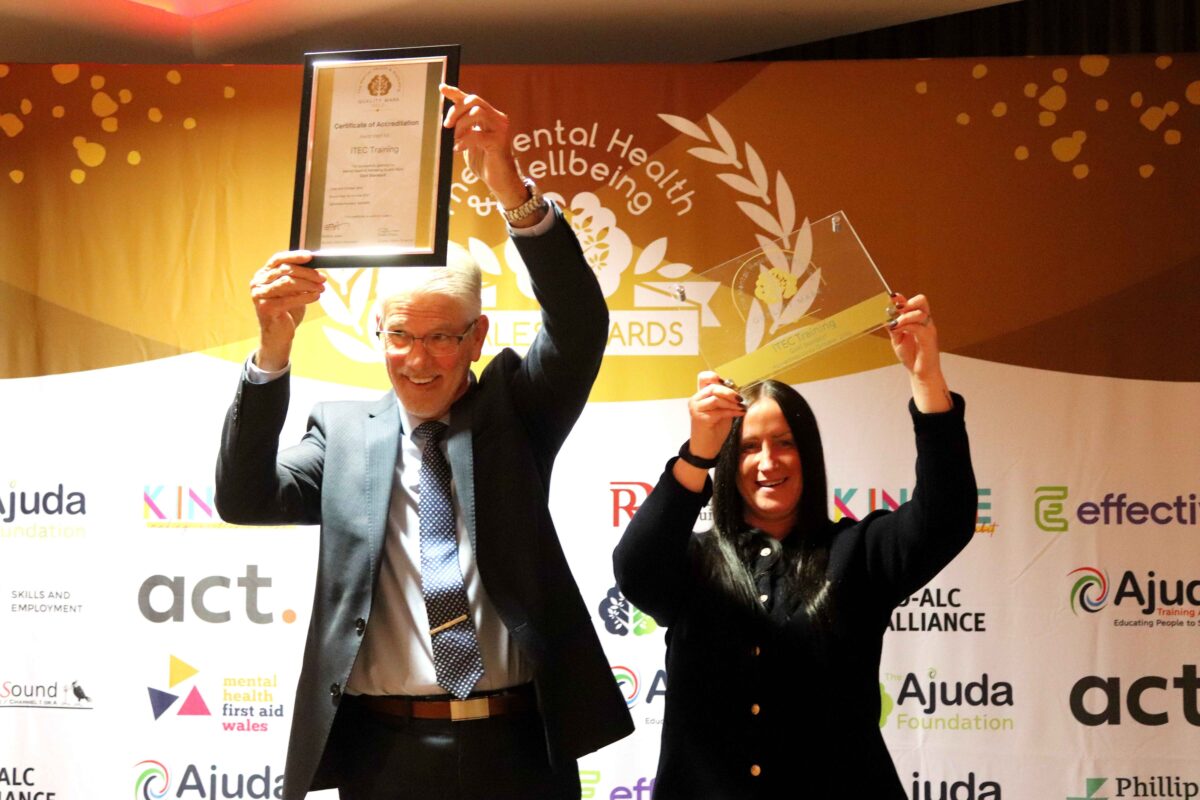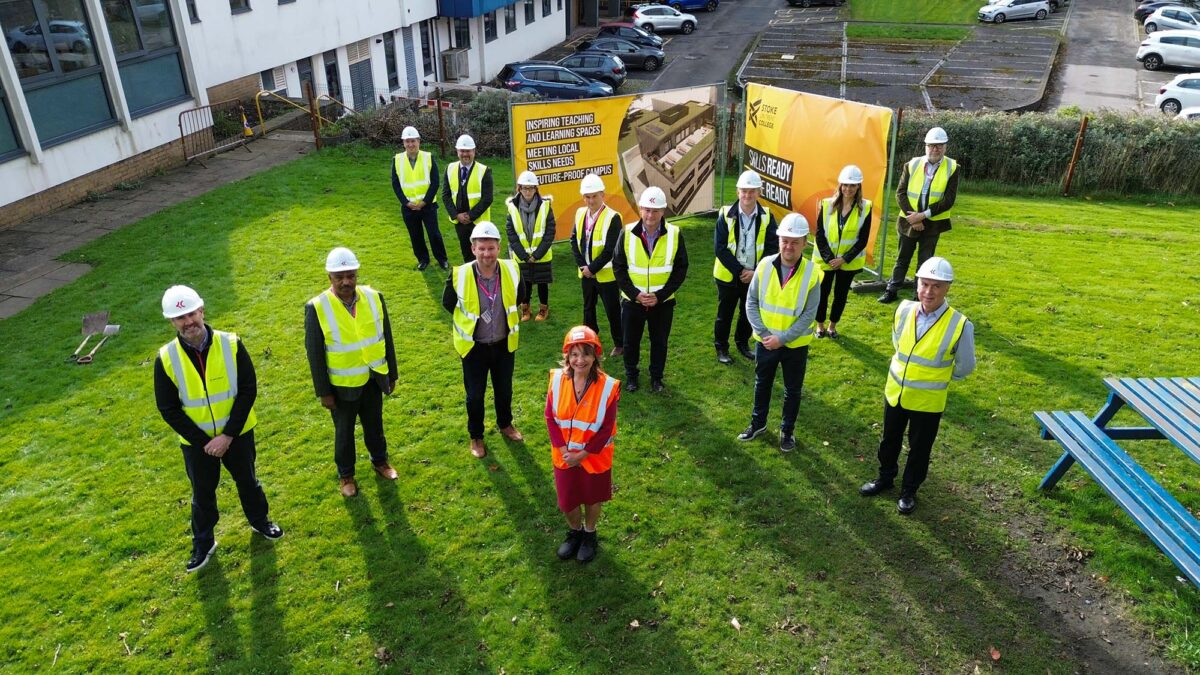Levelling Up is as much about People as Places

The UK Government’s Levelling Up White Paper becomes even more vital as we recover from the devastating effects of the Covid-19 pandemic. Many of the key messages found in the White Paper should be welcomed, not least the aspiration to give a renewed focus within government and public services to skills, schools, and families.
Yet government plans remain light on detail, and heavy on rhetoric – with any funding allocated seeming to be a repackaging of previously announced schemes. More fundamentally, levelling up has so far focused too much on place, and not enough on people.
Appreciating the Role of Independent Training Providers
Given the huge role that Independent Training Providers (ITPs) play in delivering skills training
– including the majority of apprenticeships, traineeships and skills bootcamps – we urge the Secretary of State for Levelling Up, Michael Gove, and his ministers to appreciate their work and understand how they can play a big part in the delivery of the levelling up agenda.
There are three main areas of focus which AELP believes the Secretary of State must reflect on: the devolution of the adult education budget; how the UK Shared Prosperity Fund (UKSPF) can focus on people as well as places; and what needs to be done to ensure young people in particular can benefit from levelling up.
A Proper Balance to Post-16 Funding Devolution
Matching skills to local labour markets is a challenge for the economy, as our relationship with the European Union changes. Different regions have will different skills requirements. That’s why we support the devolution of skills programmes where evidence points towards improved take-up and delivery. However, there are still programmes – such as apprenticeships and traineeships – which are best contracted at a national level.
The white paper indicates there may be a more diverse approach to the commissioning of skills funding. This could mean that providers are bidding for multiple different pots of funding in multiple different formats across the country. This would create a danger of a complex funding process and have a significant impact on the ability of ITPs to focus on delivering for adult learners. Finding a balance between producing responsive, localised skills programmes, and not creating an over-bloated bureaucracy is a huge challenge.
Rolling Out the UK Shared Prosperity Fund in England
The UK Shared Prosperity Fund (UKSPF) in England should focus on supporting skills in England. The UKSPF has been introduced to replace the money Britain received through the European Social Fund (ESF). Most of the ESF dedicated to skills was delivered by ITPs, so the UKSPF will have a significant impact on providers.
We support the UKSPF aims of boosting core skills and supporting adults to progress into work. However, we are incredibly concerned that the skills element of UKSPF is not due to be introduced until the 2024/2025 financial year. This will mean a gap between ESF grant funding and the new arrangements. A funding hole like this will have an immediate effect on the range and number of programmes ITPs can provide, putting already disadvantaged adult learners at further risk of disadvantage. It will also add further financial pressure on the sector at a time of rising inflation rates.
More Funding for Adult Training and Retraining at Level 2 and below
Levelling up must be used as a driver to prioritise access to skills by young people aged 16- 24 wherever they live in England. Covid-19 has had an immense effect on young people’s access to the job market.
We believe that every young person should be able to undertake an apprenticeship, traineeship, or work placement. In order for the most disadvantaged people to be able to access the labour market, we will need to see more funding of Level 2 and below qualifications – as well as appropriate incentives for employers to take on apprentices and trainees.
Recommendation 1
An appropriate balance must be struck between devolving post-16 education and skills budgets in England.
Recommendation 2
We urge ministers to rethink the decision to only start allocating the skills element of UKSPF from 2024/25, and to ensure there is no gap with ESF. We also believe that in the spirit of levelling up, UKSPF should be weighted towards funding skills programmes that support the needs of adult learners with lower levels of qualification – as well as those who are otherwise disadvantaged.
Recommendation 3
In order for the most disadvantaged people to be able to access the labour market, we will need to see more funding of Level 2 and below qualifications, as well as appropriate incentives for employers to take on apprentices and trainees.
Jane Hickie, Chief Executive, AELP
Post-16 Education and Skills: Levelling Up Everyone, Everywhere
Campaign for Learning’s paper Post-16 Education and Skills: Levelling Up Everyone, Everywhere, is a collection of 18 articles and recommendations by leading stakeholders and thinkers across the post-16 education and skills sector.
The paper covers six key considerations for the Levelling Up agenda – national and place based strategies, young people, lifelong training, lifelong learning and post-16 providers.
As the articles show, from the perspective of post-16 education and skills policy, levelling up is about people as well as places – the policy canvas is vast, the perspectives diverse and the insights important.
Together, our authors demonstrate the need for strong, nationally based as well as place based strategies if everyone, everywhere aged 16 and over are to level up through education and skills’
Part 1: Levelling Up and National and Place
- Andy Westwood, Professor of Government Practice, University of Manchester - Levelling Up and the Department for Education
- Sam Freedman, Research Fellow, Institute for Government – Levelling Up and Post-16 Education and Skills
- Fiona Aldridge, Head of Skills Insight, West Midlands Combined Authority – Levelling Up the West Midlands by 2030
- Mark Hilton, Policy Director, London First – Levelling Up London by 2030
Part 2: Levelling Up and Young People
- Geoff Barton, General Secretary, ASCL - Levelling Up and Education: Lots of Stuff but Little Substance
- Sam Tuckett, Senior Researcher, Education Policy Institute – Levelling Up 16-19 Education
- Becci Newton, Director of Public Policy and Research, IES – Levelling Up Participation by 16-18 Year Olds
- Kathleen Henehan, Senior Policy and Research Analyst, Resolution Foundation – Levelling Up 18-24 Year Olds in England
Part 3: Levelling Up and Lifelong Training
- Olly Newton, Executive Director, The Edge Foundation - Placing Vocational Education at the Heart of Levelling Up
- Mandy Crawford-Lee, Chief Executive, UVAC – Higher Technical Education, Higher & Degree Apprenticeships and Levelling Up
- Ewart Keep, Emeritus Professor, University of Oxford – The Role of Employer Training in Levelling Up
Part 4: Levelling Up and Lifelong Learning
- Stephen Evans, Chief Executive, LWI – Levelling Up in England through Lifelong Learning
- Susan Pember, Policy Director, HOLEX – Levelling Up as a Nation of Lifelong Learning
- Simon Parkinson, Chief Executive, WEA – The Future of Adult Learning is in the Hands of Local Leaders
Part 5: Levelling Up and Post-16 Providers
- David Hughes, Chief Executive, Association of Colleges – Well-Funded Colleges to Serve Every Community
- Nick Hillman, Director, HEPI – A ‘Higher Education Institute’ in Every Community
- Chris Hale, Director of Policy, Universities UK – Levelling Up and Widening Participation into Higher Education
- Jane Hickie, Chief Executive, AELP – Levelling Up is as much about People as Places











Responses